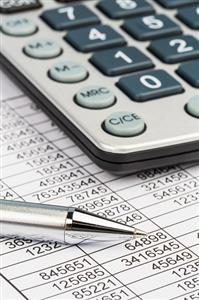
As tax season is in full swing, there are two ways to handle depreciation of equipment: the easy, risky way or the harder, smart way. Though it's easy to use the government's standard depreciation tables and schedules to depreciate your equipment values over the years, you may actually be creating a situation where you're opening your business up to risk or leaving money on the table when looking at potential opportunities. Depreciation is legal documentation of your business assets and should be accorded the same regard as your deed to your location or your business licenses. Here's why using machine appraisal to get a proper figure for depreciation of equipment can make a huge difference to your company:
How miscalculating depreciation of equipment affects your company's potential
Situations where value remains higher than the standard depreciated value
In some situations, an equipment appraiser may assign a higher value than a standardized depreciation table. If you use a depreciation table in these circumstances, you're stating a lower value than the machine may actually be worth. This is a problem in a few areas. A tax agency may claim that you are intentionally claiming a lower value to avoid taxes, especially if you use the equipment for an extended period of time after it has been fully depreciated per the standardized table. You can't leverage your assets fully to take advantage of opportunities that may come your way because your financial institution doesn't know you have more value in your machinery than stated. Not having an accurate machinery valuation may cause problems with getting cash from your insurance company to purchase comparable equipment in a loss because the tax record and depreciation is the only proof of value you have.
- Is your equipment seeing easy use? If it isn't getting normal wear and tear, it might have a higher value than an average piece of equipment of that type and quality because it will be expected to last longer.
- Did you invest in quality equipment that is still expected to be in service and retain value beyond the end date of the standard depreciation table for that type of equipment? If so, it might lose value at a slower rate and will still have value long after it has been completely depreciated.
Situations where value may be lower than the standard depreciated value
But there are also situations where your value may be below the standardized depreciation tables. In these instances, you may be overstating the value of the equipment, leaving your business open to risk and higher taxes. Paying taxes on assets that are shown as having a higher value creates a false high value, raising your business taxes. At the same time, using these figures to secure financing may open your business to additional risk when an opportunity doesn't pan out and the machinery won't sell for its depreciated rate.
- Does your equipment tend to see heavy or abusive use? If it does, it might have a lower value than an average piece of equipment of that type and quality due to a shorter expected lifespan.
- Is it of average or bargain quality? It may not last the full length of the depreciation table, forcing you to pay higher taxes on it until it fails.
- Have there been issues with irregular maintenance or uncompleted repairs? These can lead to a shorter lifespan, causing it to be removed from service before it's completely depreciated.
If you need to have equipment appraisals performed to get a corrected depreciation value, Equipment Appraisal Services can help. Our certified, highly-trained equipment appraisers are ready to find the right value for your machinery.

